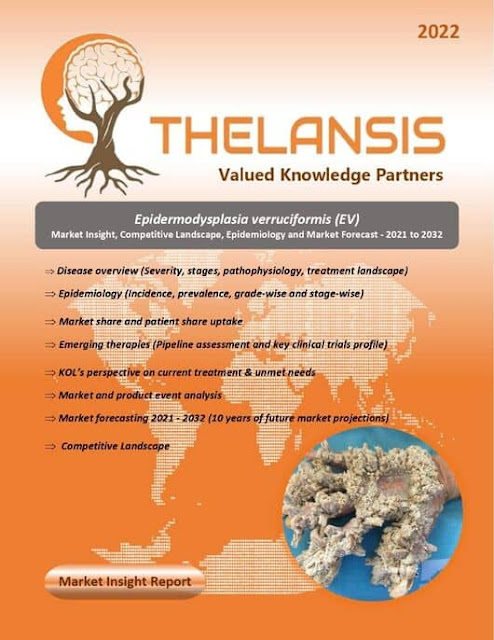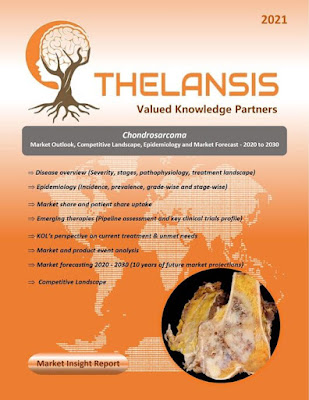Epidermodysplasia verruciformis (EV) – Market outlook, Epidemiology, Competitive Landscape and Market Forecast Report – 2021 To 2032
Epidermodysplasia verruciformis (EV) is a
rare, lifelong, cutaneous, autosomal recessive immune system disorder
characterized by increased susceptibility to cutaneous human papillomavirus
(HPV) infection beginning in childhood. The disease usually manifests during
infancy (7.5% of cases), youth (61.5% of cases), or puberty (22% of cases) with
the progressive development of hyperpigmented or hypopigmented flat wart-like
papules, irregular reddish-brown plaques, seborrheic keratosis-like lesions and
pityriasis Versicolor-like macules on the trunk, neck, face, dorsal hands, and
feet. Loss-of-function mutations can cause EV in either of two adjacent genes,
EVER1/TMC6 or EVER2/TMC8 (17q25.3), which code for membrane proteins that form
a complex with the zinc transporter protein ZnT-1 in the ER membrane of
keratinocytes. In epidermodysplasia verruciformis, two clinical presentations
have been described. Flat-topped papules and plaques with a scaly surface and
irregular borders that are white, pink, reddish-brown, dark brown, or violet.
Verrucous or seborrhoeic keratoses-like lesions. These are raised brown warty
lesions.
The prevalence of Epidermodysplasia
verruciformis (EV) ranges from 0.5 to 0.75 cases per million population in the
USA.
The competitive
landscape of Epidermodysplasia verruciformis (EV) includes country-specific
approved and pipeline therapies. Any asset/product-specific designation or
review and Accelerated Approval are tracked and supplemented with analyst
commentary.
KOLs insights of Epidermodysplasia
verruciformis (EV) across 8 MM market from the center of Excellence/ Public/
Private hospitals participated in the study. Insights around current treatment
landscape, epidemiology, clinical characteristics, future treatment paradigm,
and Unmet needs.
Epidermodysplasia
verruciformis (EV) Market
Forecast: Patient Based Forecast Model (MS. Excel Based Automated
Dashboard) which Data Inputs with sourcing, Market Event, and Product Event,
Country specific Forecast Model, Market uptake and patient share uptake,
Attribute Analysis, Analog Analysis, Disease burden, and pricing scenario,
Summary, and Insights.



Comments
Post a Comment